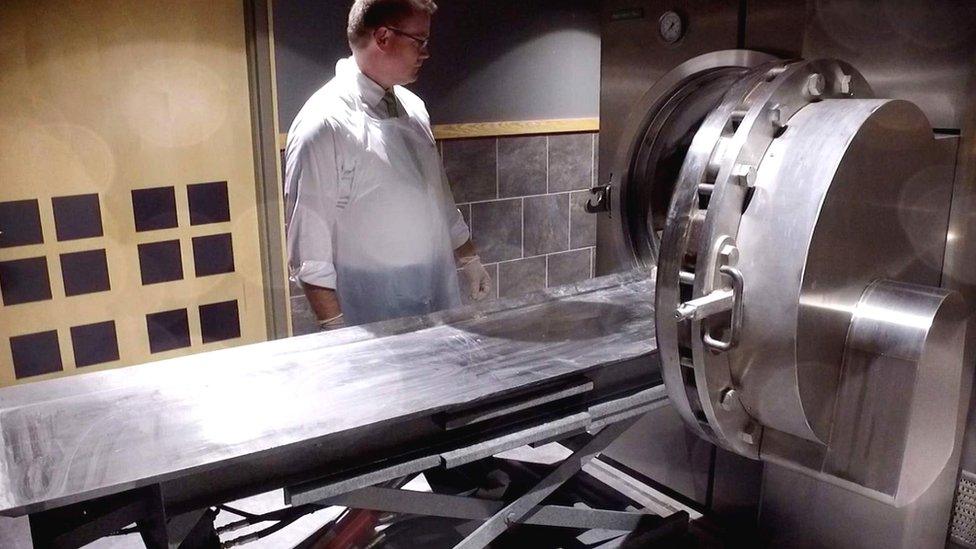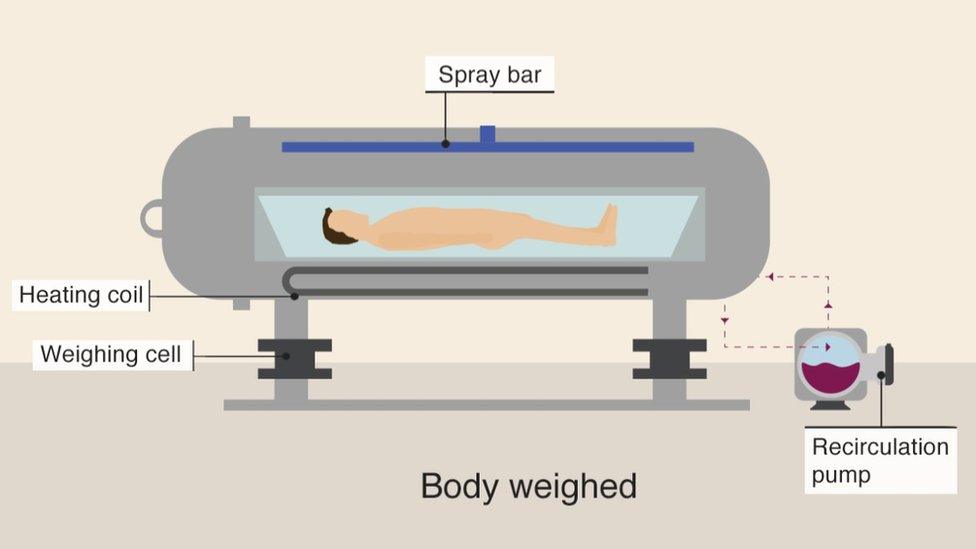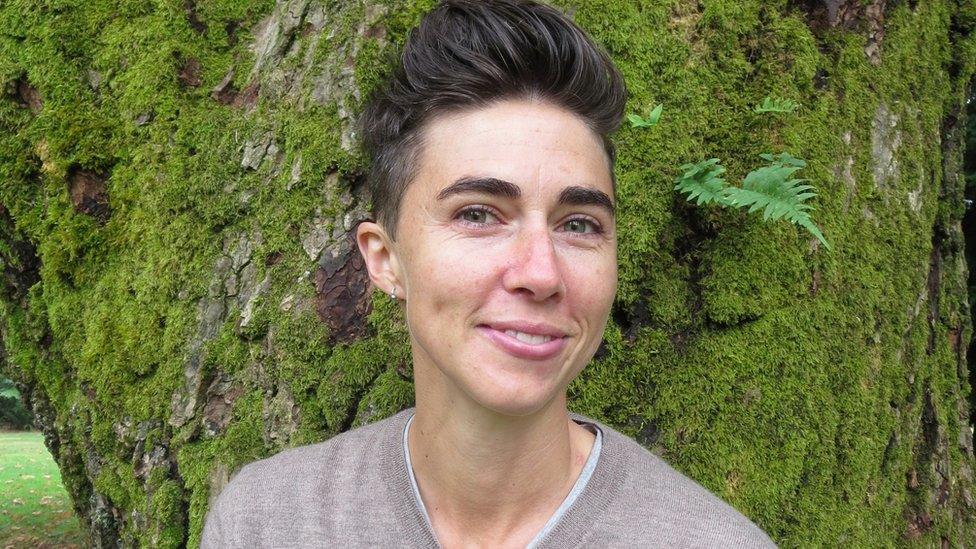Call for greener funeral options to be legalised
- Published

Water cremation is also called resomation
A funeral director is calling for more environmentally-friendly methods of body disposal to be legalised.
Andrew Purves said traditional fire cremation used a lot of energy and that ground was becoming scarce for burials.
He said people needed more choice and that alternatives like water cremation and human composting should be allowed in the UK.
The Scottish government said it wanted to allow water cremation and would be launching a consultation on the issue.
Mr Purves is director of William Purves Funeral Directors in Edinburgh, the largest independent funeral directors in Scotland.
He told BBC Scotland: "Society wants more sustainable alternatives and there are some already out there but they aren't legalised in the UK.
"Flame cremation isn't particularly eco-friendly as it takes a lot of energy.
"Water cremation is more eco-friendly, as is human composting. I would like them to be legally permitted in this country."

A water cremation machine weighs each body and calculates how much water and potassium hydroxide to add
Mr Purves added that cemeteries were running out of room in cities.
"People don't know there are alternatives out there. They should be able to have the option," he said.
Water cremation, also called alkaline hydrolysis, involves the body being placed in a chamber and broken down by a combination of water, heat and a strong alkali.
The heated solution is powerful enough to dissolve the body's tissues.
After the process, which usually takes three to four hours, the bones remain. These are powdered by a cremulator into ash.
Previous studies by Dutch researcher Elisabeth Keijzer suggested the environmental cost of water cremation was much smaller than burial or traditional cremation.
Human composting, which is also called natural organic reduction or terramation, is a process where microbes convert a body into compost.
It is legal in Sweden and in several US states.

Andrew Purves is director of William Purves Funeral Directors
A process was developed in the early 21st Century which involves encasing human corpses in wood chips, straw, and alfalfa until thermophile microbes decompose the body.
This means that the transformation process can be sped up to one or two months.
Eco-coffins made from cardboard, wool, bamboo and wicker are already available for funerals in the UK.
In England it is down to each water company to issue grants for water cremation. Defra said this is due to there being waste water at the end of each cremation.
There is nowhere in England that carries out water cremation.
A Scottish government spokesman said that the Burial and Cremation (Scotland) Act 2016 allowed for new methods of body disposal.
"We intend to regulate water cremation for use in Scotland. However, all types of body disposal must be equally safe and dignified and we must move forward in a way that protects the public and maintains their confidence," he said.
"It's therefore important that regulation of water cremation is subject to a similar regulatory framework as other methods before being introduced.
"We will soon be publishing a full public consultation as part of this process, and we will also continue to work closely with the funeral sector to support its delivery of high-quality services to bereaved families."
- Published16 February 2020
